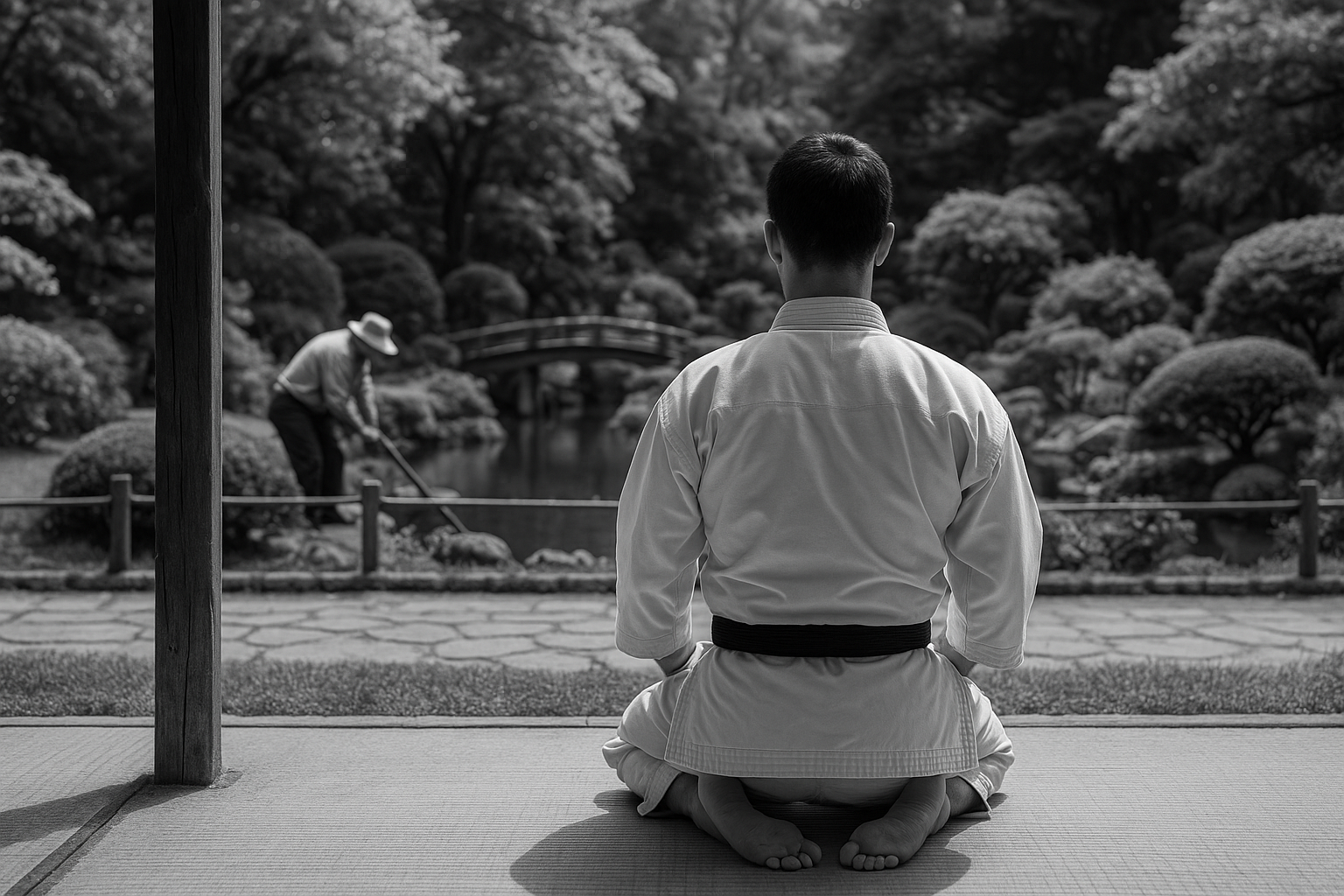007 — A Warrior in the Garden: True Pacifism, the Power of Choice, and the Monster Within
"It is better to be a warrior in a garden than a gardener in a war." — Japanese Proverb
In an age where peace and nonviolence are often idealized, it's worth asking: What does it truly mean to be a pacifist? Many imagine pacifism as a total rejection of violence—a commitment to peace at any cost. But this perception can miss something essential: the power of choice. True pacifism is not born of weakness or inability. It arises from strength—the strength to choose restraint.
To explore this idea, I'll consider the essence of authentic pacifism, the enduring wisdom behind the Japanese proverb "It is better to be a warrior in a garden than a gardener in a war," and psychological insights from Jordan Peterson, who asserts, "You should be a monster—an absolute monster—and then you should learn how to control it."
The first principle of true pacifism is this: one must be capable of violence and yet choose not to use it unnecessarily.
This highlights a critical truth: pacifism must be a choice—not a condition—to carry any moral weight. A true pacifist has the power to cause harm but consciously chooses peace. That decision, made from a position of strength and discipline, reflects moral courage. By contrast, pacifism born from helplessness is not a virtue—it's merely the absence of options. The ability to act and the will to restrain define principled pacifism.
The second principle follows naturally: one who claims pacifism but is incapable of violence is not virtuous—they are simply harmless.
This may sound harsh, but it reveals an uncomfortable truth. Peace that stems from incapacity is not a moral stance—it's a limitation. Such individuals cannot rightfully claim the ethical high ground because their "nonviolence" is not a decision—it's a default.
True nonviolence arises only when someone powerful enough to cause harm chooses not to. Anything less is not principled—it is powerlessness in disguise.
Jordan Peterson deepens this discussion with a compelling perspective: "You should be a monster—an absolute monster—and then you should learn how to control it."
Peterson's point is not to glorify aggression but to illuminate a deeper moral ideal: virtue is not the absence of capacity for harm but mastery of it.
Society often praises harmlessness, but Peterson challenges this. He argues that strength, when governed by discipline and purpose, is what defines true character. To be good, one must be dangerous—and in control. This aligns perfectly with empowered pacifism: not about being incapable of harm, but about choosing peace despite the capacity for violence.
The Japanese proverb "It is better to be a warrior in a garden than a gardener in a war" encapsulates these ideas beautifully.
A warrior in a garden symbolizes someone capable of great violence, yet choosing a peaceful life. Their serenity is not a product of fragility but of deliberate choice. Their presence in the garden is a testament to inner discipline.
By contrast, a gardener thrust into a war—untrained, unprepared, and defenseless—illustrates the danger of weakness masquerading as peace. When conflict arises, the gardener cannot protect themselves or others. This is the peril of enforced pacifism: peace without preparedness is precarious.
True pacifism is forged from strength. It is the conscious, courageous decision to wield power with restraint.
The warrior in the garden reminds us that peace is most meaningful when it is chosen, not when it is imposed by weakness. Peterson's call to "be a monster and then learn to control it" underscores the moral value of self-mastery. And in the tradition of martial arts, this wisdom is timeless.
Gōjū-ryū founder Miyagi Chōjun Sensei once said:
"Do not strike others, and do not be struck by others. This is the principle of peace without incident."
His words speak not just to physical conduct but to a way of living—a philosophy of balance, restraint, and dignity rooted in power, not fear.
In a world that often confuses inaction with virtue, we must remember:
Peace without power is vulnerable. But peace chosen by the powerful—that is true pacifism.


